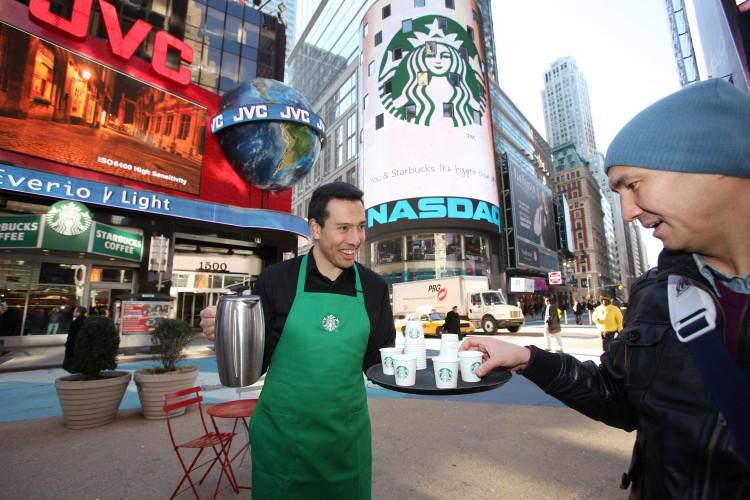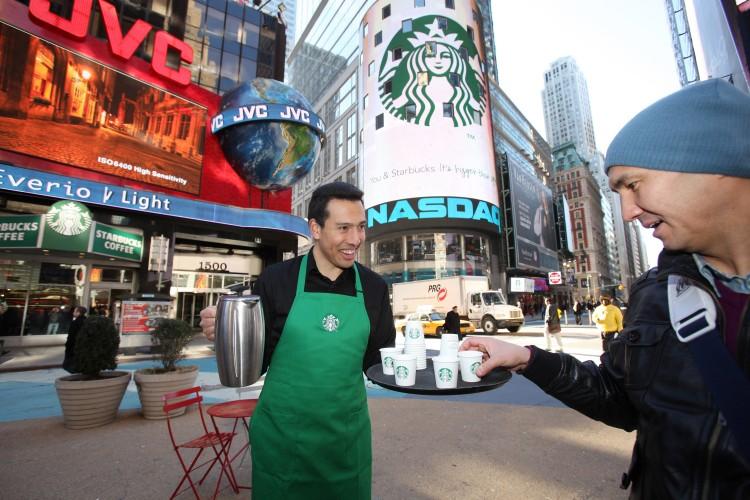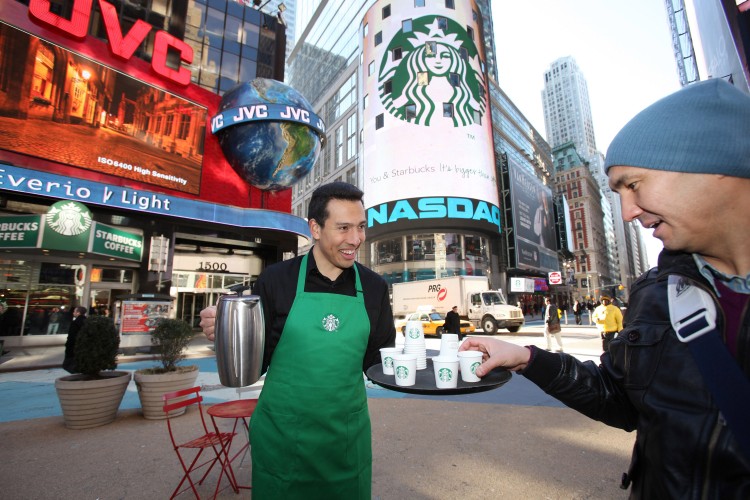Starbucks is found to rank number one out of 70 companies in a recent social media engagement study by PhaseOne, an advertising research firm. The study analyzes why—though most companies put much time and effort into television advertising and social media—some are more successful than others.
The study analyzes a wide range of companies, from H&R Block to McDonald’s.
According to PhaseOne, it makes a significant difference whether a company’s advertisement is connecting to a customer’s true image, or the image of a “socially desirable idealized self.”
The report compares McDonald’s advertising techniques with Hotwire’s, where both corporations aimed to deliver a cost-savings message about their company. The McDonald’s advertising campaign was much more successful.
Hotwire relates their message to customers through illustrating a scenario where a person is unable to afford a desirable vacation, emphasizing Hotwire’s ability to provide affordable travel. McDonald’s campaign portrayed the same idea, but through a sharp-minded person, who thinks of clever ways to save money—one of which is to eat at McDonald’s.
The study says people will associate the realistic but flawed lifestyle with Hotwire, and the “ideal,” dream life with McDonald’s—effecting how and where customers decide to spend their money.
But it’s not enough to just promote an idealistic image for the customer. The foundation of marketing lies in a company’s ability to communicate well with their customers, states the study.
Experts say that social engagement is closely tied to financial growth.
“The whole idea of social media is to allow the company to be more human, not just a faceless corporation,” said Sally Falkow, CEO of Social Ally, a social media strategist company.
Most companies today have a Twitter and Facebook page, but many treat social media as “just another broadcast channel,” Falkow said. “They’re monitoring their mentions but they’re not having a conversation with their customers.”
Falkow points out that traditional marketing techniques were always taught to center around the customer, where the product and advertisement is based on customer interest. “It’s a wonderful idea but nobody ever did it,” she said.
“Starbucks certainly has done this, they’ve engaged,” she said. “They are active on their Facebook page and their Twitter feeds. They’re talking to people.”
Starbucks applies the basic principle of communication through the “My Starbucks Idea” section on their website. Customers post their suggestions and Starbucks responds.
“It is impossible to do everything that everybody wants, but they certainly let people know that they have heard you,” Falkow said.
“A person can say ‘I want my coffee for 10 cents,’ and in most cases, Starbucks will reply and explain in a nice way why his or her suggestion wasn’t feasible,” Falkow said. “But Starbucks has made many changes according to customer suggestions.”
“Who would have thought you could make such a huge business out of a cup of coffee?” she said. “But Starbucks has become a home away from home, where people go with their laptops and sit on comfy couches.” The company learned how to appeal to customers through listening to their suggestions.
“Research has found recently that very few companies do that,” Falkow said. One out of four companies fail to respond to customer service questions, according to a poll by STELLAService, a company that rates online service among businesses.
If companies do not listen to customer suggestions, they are “just paying lip service to the idea of social media,” Falkow said.
“For whatever else Starbucks is doing, not doing, or doing unfairly, people do love Starbucks,” she said.
In the past, Global Exchange has criticized Starbucks for taking advantage of farmers by not buying “fair trade” beans. In response, Starbucks introduced whole bean Fair Trade Certified coffee at over 2,300 stores in October 2000.
“The power of the customer’s voice is enormous. People never had that power before, but they do now,” Falkow said.
Falkow brings up the Bank of America incident in 2011, when a 22-year-old nanny working two jobs started an online petition on Change.org against the bank’s proposal of a monthly $5 debit card fee. The petition received 300,000 signatures, followed by a dozen similar petitions. Bank of America dropped the fee within a month.
“That pressure was impossible to ignore,” Falkow said. “You have to get involved in the conversations, because the conversation is happening with or without you.”






